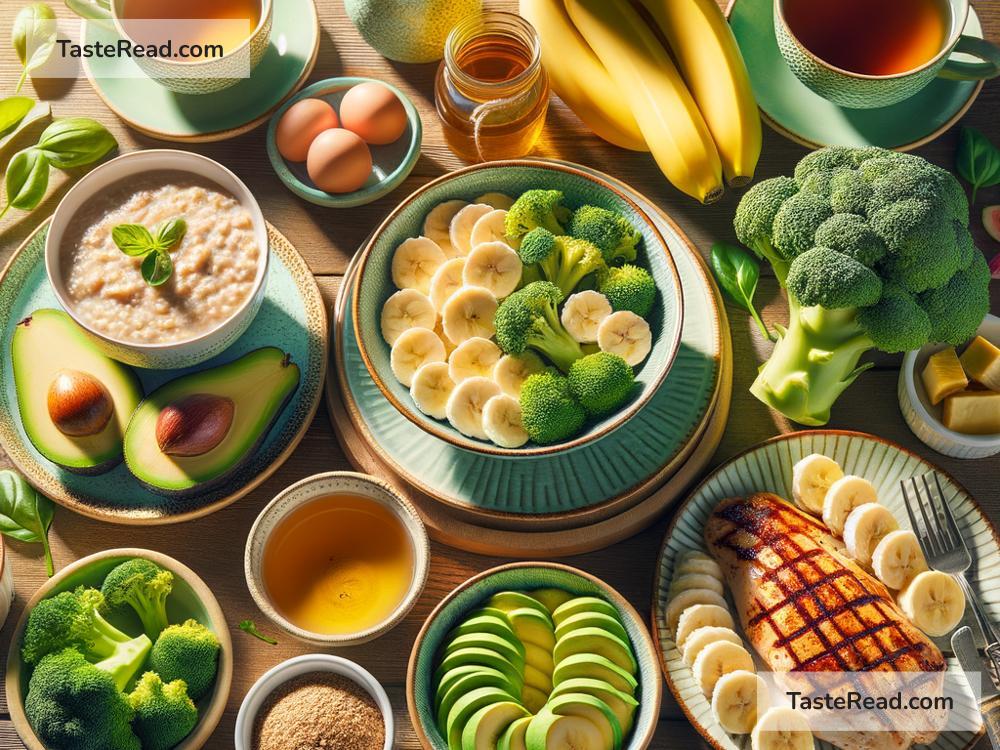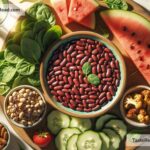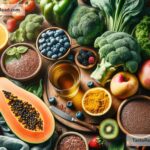Foods That Promote Healthy Digestion in the Esophagus
Our digestive system plays a crucial role in maintaining overall health. The esophagus, a muscular tube that carries food from the mouth to the stomach, is often overlooked when discussing digestion. However, its health is essential for proper digestion and avoiding discomfort like acid reflux or heartburn. Thankfully, choosing the right foods can help keep your esophagus healthy and support smooth digestion. In this article, we’ll explore foods that promote healthy digestion in the esophagus—and why they matter.
The Importance of Esophagus Health
The esophagus is key to digestion. It moves food by contracting its muscles in a process called peristalsis. However, issues like acid reflux, GERD (Gastroesophageal Reflux Disease), or damage from stomach acid can affect the esophagus. Over time, these conditions can lead to irritation, inflammation, or even esophageal ulcers.
A healthy diet can protect your esophagus from damage, soothe irritation, and support overall gut health. Let’s dive into the types of foods that work wonders for esophagus health.
1. Fiber-Rich Foods
Fiber is your esophagus’s best friend. Foods high in fiber not only aid digestion but also reduce acidity in the stomach, which helps protect the esophagus from acid reflux. Fiber also encourages regular bowel movements and prevents constipation, which reduces pressure on the stomach and esophagus.
Examples of Fiber-Rich Foods:
– Oatmeal
– Whole grains (brown rice, quinoa, whole wheat bread)
– Fruits like apples, pears, and bananas
– Vegetables like broccoli, spinach, carrots, and sweet potatoes
Incorporating fiber in your diet creates an environment where digestion is smooth and gentle on the esophagus.
2. Healthy Fats
Not all fats are bad! Healthy fats like omega-3 and monounsaturated fats play a role in reducing inflammation that can occur in the esophagus due to acid reflux or irritation. These fats are easy to digest and don’t trigger the production of excess stomach acid.
Best Sources of Healthy Fats:
– Avocados
– Nuts (almonds, walnuts, cashews)
– Olive oil and flaxseed oil
– Fatty fish like salmon and mackerel
Avoid trans fats and saturated fats, as these can worsen reflux and irritate the esophagus.
3. Low-Acid Fruits
Acidic foods can aggravate the esophagus, especially if you’re prone to acid reflux. Low-acid fruits are gentler and provide essential nutrients for repair and maintenance of the digestive tract. These fruits also hydrate the lining of the esophagus, preventing it from becoming dry or irritated.
Low-Acid Fruits to Try:
– Bananas
– Melons (honeydew, cantaloupe, watermelon)
– Papayas
– Mangos
These fruits are soothing to the esophagus and can be consumed as snacks or blended into smoothies for added benefits.
4. Lean Proteins
Proteins help repair tissues in the esophagus. However, fried or fatty proteins can cause acid reflux and discomfort. Instead, choose lean proteins that are easier to digest and won’t overwhelm the stomach or esophagus.
Examples of Lean Proteins:
– Skinless chicken or turkey
– Fish (cod, tilapia, salmon)
– Plant-based protein like tofu or lentils
– Eggs (preferably boiled or poached)
Cooking methods matter too! Try baking, steaming, or grilling to avoid greasy meals.
5. Alkaline Foods
Alkaline foods can neutralize stomach acid and prevent it from creeping into the esophagus and causing damage. Incorporating these foods into your meals can provide relief and make digestion smoother.
Best Alkaline Foods:
– Leafy greens (spinach, kale)
– Cucumbers
– Sweet potatoes
– Broccoli
A diet rich in alkaline foods may reduce the risk of developing symptoms like heartburn.
6. Ginger
Ginger is one of nature’s best remedies for digestive health. It has anti-inflammatory properties that can soothe irritation in the esophagus while aiding overall digestion. Drinking ginger tea or adding fresh ginger to your dishes can reduce acid reflux and keep your esophagus happy.
7. Water
Though technically not a food, staying hydrated is essential for esophagus health. Water washes down food smoothly, helps dilute stomach acid, and ensures the esophagus stays moisturized and healthy. Aim to drink plenty of water throughout the day, especially during meals.
Foods to Avoid
While certain foods promote healthy digestion, others can make things worse. For esophageal health, it’s best to limit:
– Spicy foods
– Fried or greasy foods
– Acidic foods (tomatoes, citrus)
– Caffeine
– Carbonated drinks
– Alcohol
These foods can irritate the esophagus, weaken the muscle that prevents acid reflux, and make digestion uncomfortable.
Simple Tips for Esophagus Health
- Eat Smaller Meals: Large meals can put pressure on the esophagus and stomach, making reflux more likely.
- Avoid Eating Right Before Bed: Digesting food lying down can trigger acid reflux. Wait at least 2–3 hours after eating before sleeping.
- Chew Slowly: Eating too quickly can lead to swallowing air, increasing pressure in the esophagus.
- Stay Upright After Eating: Sitting or standing keeps stomach acid in place, reducing reflux risk.
Conclusion
Taking care of your esophagus starts with choosing the right foods. Fiber-rich options, healthy fats, alkalizing vegetables, and gentle fruits all work together to promote smooth digestion and reduce irritation in the esophagus. By eating smaller, balanced meals and drinking plenty of water, you can protect your esophagus and enjoy a healthier digestive system. Remember, a happy esophagus is the gateway to a happy gut!


